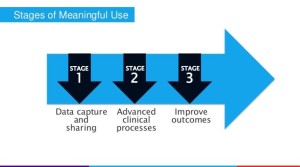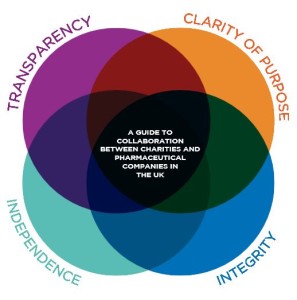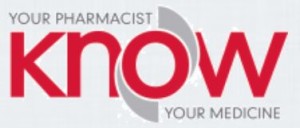- Healthcare industry says it struggles to define value (mmm-online.com)
Value-based care represents a new set of strategies that aim to reduce wasteful healthcare spending. It includes replacing branded drugs with cheaper generics, using financial incentives to encourage the use of certain drugs on a payer's formulary and insurers electing to cover certain prescription drugs at a lower co-pay…value-based approaches to addressing rising drugs are a possible lever for reducing wasteful healthcare spending—but defining value for payers, drugmakers and patients remains a serious obstacle to adoption…“We don't have a common definition of ‘value-based.' Every other industry has figured out how to do this in a free-market system…Drug pricing has hit an inflection point...There has been new scrutiny from lawmakers and presidential candidates over how drugmakers price their medicines…Some pharma companies have started to publicly discuss new strategies such as risk-sharing or value-based pricing that would support giving high prices for innovative new therapies…pharma needs to show leadership in moderating the prices of established products.
- No more prescriptions for common drugs (theaustralian.com.au)Over-the-counter items recommended for de-listing or amendment from 1 January 2016 (pbs.gov.au)
PATIENTS and taxpayers are set to save some cash as the federal government announces it'll no longer subsidise basic over-the-counter medicines like paracetamol and aspirin...17 common drugs that treat issues like headaches, heartburn and constipation will be removed from the Pharmaceutical Benefits Scheme from January 1, 2016…The move is expected to save taxpayers half a billion dollars over the next five years, which…says will instead be spent on listing new life-saving drugs…The Consumers Health Forum is concerned consumers will now be buying and taking medicines without a treatment plan and regular monitoring from their doctor... the move will have no impact on a patient's ability to speak to their doctor or pharmacist about over-the-counter medicines… Australian Medical Association…said doctors welcomed the announcement, which was based on advice from the independent Pharmaceutical Benefits Advisory Committee.
- CMS drops final EHR meaningful use rule (healthcareitnews.com)
Centers for Medicare and Medicaid Services and ONC have released final rules for the EHR Incentive Programs, which they say will ease reporting requirements for providers and allow for 90-day reporting periods…also announced major news on Stage 3 of the program…CMS made some…big changes to the regulations:
- Give providers and state Medicaid agencies 27 months, until Jan. 1, 2018, to comply with the new requirements and prepare for the next set of system improvements.
- Give developers more time to create the next advancements in technology that CMS says will be easier to use and more appropriate to new models of care and access to data by consumers.
- Support provider exchange of health information and interoperable infrastructure for data exchange between providers and with patients.
- Address health information blocking and interoperability between providers.
- New guide published to support transparent and effective engagement between the pharmaceutical industry and charities (abpi.org.uk)Working together, delivering for patients - A guide to collaboration between charities and pharmaceutical companies in the UK (abpi.org.uk)
National Voices and the Association of the British Pharmaceutical Industry have jointly produced a guide on collaboration for both charities and pharmaceutical companies. The guide highlights the benefits that working together can deliver, alongside some of the issues and risks that all parties need to consider… The aim of the guide is to ensure that such collaborations are more likely to happen, for the benefit of charities, pharmaceutical companies and patients.
- Regenerative Medicine: Could This Be Healthcare’s Saving Grace? (forbes.com)
Regenerative medicine is one of the fastest growing biomedical industries in the world because patients are being cured of diseases that were once incurable…represents a new paradigm in human health because the vast majority of treatments for chronic and life-threatening diseases focus on treating the symptoms, not curing the disease…there are few therapies in use today capable of curing or significantly changing the course of a disease. New regenerative medicine is changing this by engineering, growing, and regenerating tissues and organs using biological processes similar to those normally used in humans…Cell therapy makes up over 60% of the regenerative medicine market…Pharmaceutical companies are building relationships with innovating regenerative medicine companies… Transnational supply-side economics is driving the market; there is low regulation and multiple offerings for numerous conditions, with some being offered to treat life-threatening diseases. Regenerative medicine has the potential to ultimately change the way medicine is practiced throughout the world.
- Australia to allow marijuana to be grown locally for medical trials (reuters.com)
Australia is altering its drug laws to allow for the cultivation of marijuana for medicinal and scientific purposes, removing a major hurdle to the establishment of clinical trials of the drug, the government said…Draft amendments to the Narcotics Drugs Act are being finalised to allow for the controlled cultivation of marijuana, giving patients access to "a safe, legal and sustainable supply of locally produced products for the first time,"…Australian manufacturers, researchers and patients currently have to access international supplies of legal medicinal marijuana, with cost, limited supply and export barriers making this challenging.
- October is American Pharmacists Month (pharmacist.com)
Celebrate and Spread the Word....The goal of American Pharmacists Month is to promote your profession and get the attention you deserve among your peers, patients and community. We’ve filled this site with ideas for activities and events that spotlight pharmacists’ contributions toward improving medication use and advancing patient care in all practice settings. Use these ideas throughout October—and all year long—to inspire your celebrations! Remember to email any coverage, clips and event photos to aphm@aphanet.org.
- Get the Message to the People
- Ways to Celebrate In Your Practice
- Roles for Student Pharmacists and APhA-ASP Chapters
- Role for Pharmacy Technicians
- APhA Foundation’s Pharmacists Care Campaign
- Pfizer expands eligibility for RxPathways patient assistance programs (drugstorenews.com)
Pfizer is looking to help more patients afford medication, announcing… that it would be expanding eligibility for its RxPathways program, which offers services to help patients access medication. The change makes patients who earn up to four times the federal poverty level based on family size (up to $97,000 for a family of four) eligible for some of the 40 medicines offered for free by the program…“We have listened to patients and acted quickly to significantly expand the eligibility of our patient assistance programs. While patient assistance is not a permanent solution, it is a necessary step for helping to solve some of the high co-pay issues that some patients face,”…
- Big Pharma teams up to defeat drug pricing proposal in California (fiercepharma.com)
California wants to cap drug prices, but Big Pharma isn't having it. Amid a growing backlash over drug pricing, companies such as Johnson & Johnson and Bristol-Myers Squibb are funneling millions of dollars into stamping out a new proposal that would curb drug spending in the state…other companies including Pfizer, Eisai, Purdue Pharma, The Medicines Co., Sunovion Pharmaceuticals and Daiichi Sankyo contributed to a fund that would quash a state ballot initiative…The initiative, dubbed the California Drug Price Relief Act, would only allow government health programs to strike contracts with drugmakers at prices that are the same or lower than those paid by the Department of Veterans Affairs, which usually gets steep discounts on meds from manufacturers…
- Hospitals slapped with lawsuit for medical records overcharging (healthcareitnews.com)
A group of individuals has slapped two D.C. hospitals with a class action lawsuit, alleging that their charges for requesting medical records -- ranging from $1,168 to $2,500 -- violate state and federal regulations...alleged the hospitals collected "illegal and grossly excessive charges" for copies of the patients' medical records, which were collected by a third-party vendor HealthPort,...Counsel for the hospitals,...said that federal law did not apply to third-party requests...hospitals and HealthPort overcharged medical records by a whopping $7 million.







